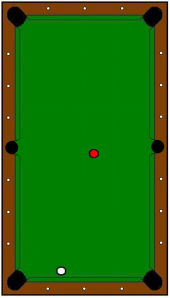Ideas, articles and resources to support coaches working to develop the skills and qualities of young people with golfing ability.
Monday, 14 December 2009
Take the England Golf 'Attitudes to coaching survey' - you could win an 'England Experience' at the National Golf Centre, Woodhall Spa
England Golf is conducting a survey of peoples attitudes towards coaching. It should only take 5 minutes and everybody who provides their opinions will go into a draw to win a unique coaching experience at Woodhall Spa with the England national squad coaches.
Click the link below to go to the survey
Click here to take survey
Thanks
Stuart
Thursday, 3 December 2009
The Toyota Way - 14 Management principles
I thought I would share this slide show with you as it gives an interesting insight that I think would benefit us all an whatever area we work, hope you find it interesting.
Deep practice in action
Friday, 23 October 2009
The Talent Code - Daniel Coyle
Thursday, 27 August 2009
More Stuff from TED - Dan Pink on Motivation
Friday, 29 May 2009
'What I learned...' - Coaching and Reflective Practice
Saturday, 16 May 2009
Rory McIlroy, a talent nurtured
At the Masters the bubbly and ever engaging past Masters champion and genuine legend of the game, Gary Player said this about the young Irish star, Rory McIlroy...
“This young man is brilliant. His golf swing is unbelievable and his theory side, his swing, is better than Tiger Woods."
“He’s an incredible talent and has excelled already at a very young age. I believe he’s a very nice young man too and I hope he goes from strength to strength."
What this doesn't tell is the story of how Rory got to where he is now and the impact that a number of people had on his career.....
Back in 2001 I was working for the Golf Foundation and covering Ireland, I was invited to deliver a 'Golf Leaders' course by the junior organiser of a club in Belfast called 'Shandon Park'...the organisers' name was Ronny McNeice and a kinder, more generous and fun loving gentlemen you would find it hard to meet.
Ronny had researched on the internet and found that the GF provided Leaders courses which had only been launched the year before and he had asked me to come over and deliver the course for him and a number of other organisers from his club and clubs in the area. He arranged everything and saw to it that the club provided for our every need including the cost of our accomodation. The 2 day course was a great success and the people on it were really keen and enthusiastic to support the young people in their clubs.
Half way through the 1st day during the lunch break Ronny asked me to come and meet one of the junior golfers that was practicing on the putting green outside the club house. He called him over and this curly haired little 10 year old enthusiastically bounced over to me, Ronny introduced me and the little boy calmly and confidently held out his hand and said 'my names Rory...pleased to meet you!'. We chatted for a little while and Rory told me that he had just returned from the World Junior Golf Championships, which he had won and the various other things that he had done in his short career. I made a mental note after we chatted to keep an eye on this young man's progress!!
I wonder how Rory's development would have been affected had he not been at a club that was so committed to junior golfers. I also wonder what would have happened had he not had a junior organiser like Ronny who was so committed to youngsters and wanted to do the best for them at any cost?
I don't work in Ireland anymore but if I did I would ensure that Ronny McNeice was given an award...people like him are the unsung heroes, the guys who set kids off on the right path, who unearth the talent, nurture it, create the environment so it can thrive.
So here's my tribute to you Ronny.... the golfing world needs more people like you!!
